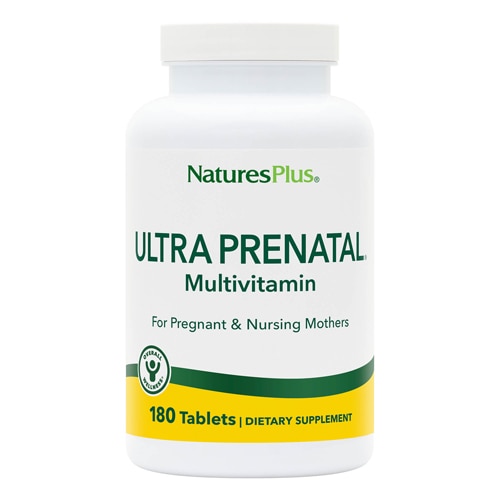For decades, healthcare professionals have recommended women of childbearing age take prenatal multivitamins – and for good reason. As you develop a baby, your health directly influences the health of your child. By taking a prenatal, you provide the support you and your baby need during these critical months.
But what are prenatal vitamins, anyway? Many women simply accept them as fact without really understanding what they do or how to choose a prenatal vitamin.
What are prenatal vitamins?
Prenatal vitamins are specially formulated supplements that supply key micronutrients to support a healthy pregnancy.†
Pregnancy increases your body’s need for certain nutrients, especially micronutrients (vitamins and minerals). For example, your folate needs increase from 400 micrograms per day to 600 micrograms per day, as this B vitamin plays an important role in preventing neural tube defects. In fact, most of your B vitamin requirements will increase slightly, as will your daily needs for chromium, copper, molybdenum, vitamin A and vitamin C.
(You may also be interested in the difference between folate and folic acid.)
In addition to the basic micronutrient profile, most prenatal vitamins contain a blend of ingredients shown to support healthy fetal development. These might include:
Docosahexaenoic acid (DHA) – DHA is particularly important for fetal eye and brain development. Remember that DHA is an essential omega-3 fatty acid, which means it must be consumed through diet or supplements. You can find it in fatty fish or vegetarian sources, such as flax or chia.†
Note: Flax and chia contain the parent fatty acid, alpha-linoleic acid (ALA), which is then converted to DHA, though rather poorly. A better plant-based option is an algae-based DHA, because algae is the purest source of this fatty acid (it’s how fish get their high levels of DHA).
An herbal blend – You might notice a proprietary herbal or vegetable blend on the label. The combination is added to help provide some support when you’re lacking a variety of nutrients in your diet.
Ginger or peppermint – Pregnant bellies can be very sensitive to tastes and smells. To help calm an upset stomach, some prenatal formulas feature ginger and peppermint for their naturally soothing properties.
What prenatal vitamins do
Between morning sickness, unusual food cravings and any other gastrointestinal distress you may experience during pregnancy, it can be challenging to meet the recommended nutrient levels from food alone. Prenatal vitamins help fill in those nutrient gaps, so you can take one more worry off your list.†
How to choose the best prenatal vitamins
What defines the “best” prenatal will vary from woman to woman, as it largely depends on your individual body’s needs and preferences. That said, there are several questions to ask yourself when shopping for your prenatal multivitamin.
- Is it made with whole-food based ingredients?
- Does the supply of micronutrients meet my needs? (at least 100-percent Daily Value)
- What other ingredients or excipients in supplements were used to make this prenatal?
- Do I need an herbal blend or other supportive ingredients?
- Am I getting my money’s worth?
Other dietary considerations
There are a lot of misconceptions around pregnancy fitness and nutrition. One of the more common being that you need to “eat for two.” The truth is, healthy weight gain during pregnancy is about one pound per week in the first trimester, followed by one pound per month in the second and third trimesters. This equates to approximately 300 calories more than your pre-pregnancy baseline.
Also, what you eat matters. It’s best if those additional calories (and the majority of your calories) come from whole, healthy foods. Overconsumption of low-nutrient foods (i.e. most processed snacks) can lead to gestational diabetes in the mom-to-be. This condition has been correlated with an increased risk of the child developing carbohydrate metabolism issues later in life.
Developing a child is the most important job you will ever have. If you’ve never been pregnant, you will probably have a lot of questions – and that’s perfectly natural. Hopefully, we’ve at least answered “what are prenatal vitamins?” and explained what prenatal vitamins do for you and your growing baby. Should you have any further questions or concerns, don’t hesitate to share them in the comments below or find us on social media @vitacost.
†These statements have not been evaluated by the Food and Drug Administration. These products are not intended to diagnose, treat, cure or prevent disease.




